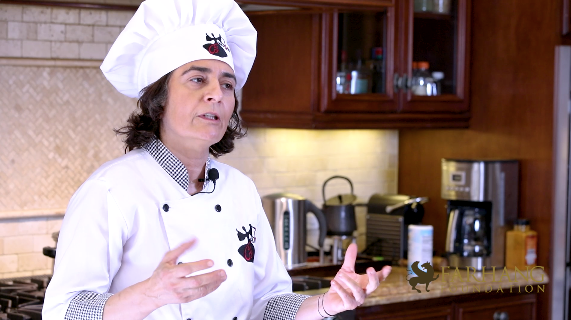
We’ve been this way for a while. We are set in our ways. We’ve always had a short fuse. We’ve always been sad about our childhood. We’ve always had trouble with our eating. We’ve never been much good at being faithful.
Maybe you have a mean streak. Maybe you’re too timid. Maybe you don’t like to try very hard. Maybe you don’t think you’re good enough.
How’s that working out for you? Why keep going down a road that leads nowhere?
Marcus Aurelius talks about how crazy it is that we just go on staying the same person we’ve always been—how we just “keep being mauled and degraded” by the life we’re living. And for what? It’s not even pleasurable. It’s not even getting us what we want.
A person who can’t change, who refused to change, he says are “like those animal fighters at the games—torn half to pieces, covered in blood and gore, and still pleasing to be held over till tomorrow… to be bitten and clawed again.”
The definition of insanity, they say, is doing the same thing over and over and expecting different results. There is nothing sadder than a person who can’t grow, who cannot turn over a new leaf, who cannot take a leap of faith forward, into the dark.
You have to be willing to change. You must change. You must get better.
Not later, not eventually, but now.
Why not start 2021 by actually taking the steps to create a better life? To actively step toward being the person you know you can be?
That’s why we created the New Year, New You Challenge. It’s a set of 21 actionable challenges—presented one per day—built around the best, most timeless wisdom in Stoic philosophy. Our goal is to help you make 2021 your best year yet.
Every year—this year right in front of you—can be the most important year of your life. The one where you become your best, most creative, most centered, most self-reliant and resilient self. But you have to be willing to change.
Our New Year, New You Challenge is all-new content, guided by thousands of responses and reactions to our previous challenges, courses, videos, and emails. It’s a whole new challenge based on painstaking research and timeless science, for an all-new, life changing experience.
The challenge is designed to help you:
- Stop procrastinating on your dreams
- Learn new skills
- Quite harmful vices
- Make amends
- Learn from past mistakes
- Have more hope for the new year
- And much, much more…
What are the risks or the downsides of NOT taking control of your life? For allowing another year to pass not living up to your potential? Not changing your ways? Most of the risks aren’t dire, but none of the downsides are good. Some are just downright miserable. Don’t let that happen in 2021. Again.
You have to be willing to change. Don’t wait to better yourself. Stop being mauled and dragged down by the life you’re living. Don’t wait to demand more of yourself. Start Now.
In his 91st Letter, Seneca tells Lucilius about his friend Liberalis who is “in some distress at the present moment following the news of the complete destruction of Lyons by fire.” It was a terrible, savage tragedy that calls to mind the images we see on the news all over the world on a day-to-day basis.
In our interview with Anthony Long—one of the most respected philosophers at one of the most important universities in the world—he talked about why Seneca was writing this letter to his friend. It wasn’t to panic his friend with thoughts of natural catastrophes. It wasn’t to say ‘Wow, did you hear what happened? Can you believe it? What a tragedy! We’re all doomed!’ No. “In describing these catastrophes,” Long told us, “Seneca, like other ancient Stoic philosophers, totally belied the modern image of the unconcerned Stoic:”
Ancient Stoicism was actually a philosophy of action. It did not teach resignation, much less apathy, but realistic acceptance of human vulnerability and making the best of oneself and one’s situation in all circumstances, good and bad alike. Writing about the devastating fire of Lyons, Seneca fully acknowledges the horror of the event. His advice for the future is to cultivate readiness for anything: letting nothing catch you completely unprepared, acknowledging the suddenness and unpredictability of change (think of how the US stock market went from boom to bust in a few days), taking a comprehensive view of human history (think of the rise and fall of empires), recognizing that the rumor mill always exaggerates, and that fortune is no respecter of status or success or wealth. As he says sharply but accurately: “born unequal, we die equal”. Another helpful tactic is to concentrate on the present, neither pinning hopes on the future nor regretting the past, but recognizing that we are fully alive and effective only in the present fleeting moments.
As we grapple now with the kind of foe that the Romans were well familiar with—a global pandemic—we would do well to think of this example. Our job as philosophers is to be prepared. We must never, as Seneca said, find ourselves in that shameful position of saying, “I did not think it could happen.” We can’t do what so many world leaders did as COVID-19 was beginning its exponential spread and look to our neighbors suffering and think, “I’ll be spared. I will be skipped.”
No. We have to be aware. We have to be prepared. We have to care. The fate of one is the fate of all. We are all vulnerable and our ignorance only makes us more so. And we must seize and drink in the present while we can. Don’t let the mob distract you. Don’t take people for granted. Do what you can right now. Before it’s too late.


























































